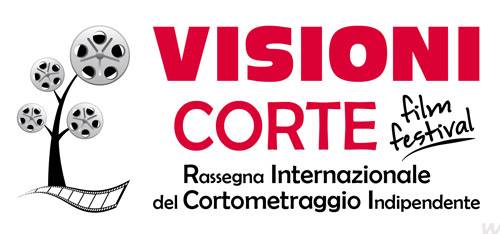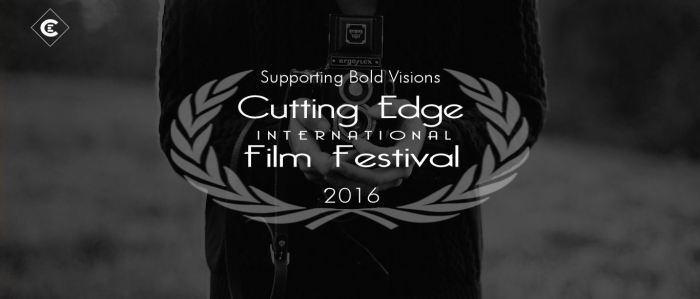The Launch Pad is a place dedicated to launching writing careers. Going well beyond what other competitions offer, we have created a platform that has helped more than 180 writers launch their careers. Utilizing our three competitions – pilots, features and manuscripts – as well as our advanced coverage services, we provide a hub that reaches far beyond a simple prize with your name listed on a site. The Launch Pad is a community of writers, executives, agents, managers and producers working together with one focus in mind – THE WRITER.
Matthew Toffolo: What is your Film Festival succeeding at doing for filmmakers?
Our competition has been able to get more writers signed in the last 4 years then any other competition out there. We pride ourselves in using our deep industry relationships with agents, managers, and executives to give writers the necessary exposure to take the next step in their writing career.
MT: What would you expect to experience if you attend the festival this year (2017)?
If you enter our competition we guarantee that your script will receive at least two complete reads from professional readers who have read or currently still read for major agencies, management companies, studios, and production companies. A large number of scripts receive additional internal reviews as well. We take great pride and responsibility in the submissions we receive and so we work tirelessly trading hundreds of emails, texts, and phone calls with reps to help everyone from our Top 75 to our Winners get the recognition they deserve.
MT: What are the qualifications for the selected films?
Our competition is open to writers of all levels. Their script needs to be an original work, which must be their sole property and not have previously sold or placed Top 25 or higher in one of our previous competitions.
MT: Do you think that some films really don’t get a fair shake from film festivals? And if so, why?
That’s a really great question. I know for some of the bigger festivals that carry a lot of prestige like Sundance, TIFF, SXSW, and Austin, they are flooded each year with a huge number of entries. So the competition is fierce and many great films still may not make the cut. That said, I think those festivals really pride themselves in curating their films with thought provoking and unique films while simultaneously looking to identity new and emerging creators. There are also countless other respected festivals that are great ways for creators to gain recognition and get the exposure necessary to help their career. These festivals may be more accessible and a good first step along the journey.
MT: What motivates you and your team to do this festival?
For many of us here we come from a writing background and have also worked at management and production companies. Having been on both sides of the business we’re able to understand the needs of our writers and the reps that we work with. What gets us fired up is working with writers who if it weren’t for our competition may not have access to Hollywood and couldn’t otherwise get their material in the hands of some of the industries biggest agencies and management companies. The way that we see it is we’re here to try and help people jumpstart a professional writing career, and instead of climbing up from the bottom of a ladder we want to give them a boost so they can start half way up. With each of our competitions we’re able to help dozens of new writers land representation or set up their projects. Writers who have placed or won our competitions have sold six-figure spec scripts
to studios like Fox and Paramount and are currently writing for shows like Timeless, i-Zombie and Stranger Things amongst others. We’re truly humbled by the amount of success our writers have been able to achieve as a result of our competition.
MT: How has your FilmFreeway submission process been?
Film Freeway has been great. They have such a streamlined and easy way to connect with writers and have become the premiere hub for festivals and competitions.
MT: Where do you see the festival by 2020?
In space! Just kidding. We’ve been fortunate enough in the last year to partner with some of the biggest companies in the business. Just last year we partnered with Ridley Scott’s – Scott Free Productions, Roy Lee’s Vertigo Entertainment, and Brooklyn Weaver’s Energy Entertainment to name a few. These partnerships give us an opportunity to offer entrants prizes that include guaranteed signing and guarantee option opportunities from some of the biggest names in Hollywood. As we continue to grow we want to find new and innovative ways to partner with more companies to offer writers unique career opportunities that can’t be found anywhere else.
MT: What film have you seen the most times in your life?
Oh man this is a tough one! I’d say its a tie between Toy Story and Gladiator. Two widely different movies but both were staples during different times in my life. Toy Story was definitely my go to VHS movie growing up, and Gladiator was the first DVD I ever bought. The movie is a masterpiece!
MT: In one sentence, what makes a great film?
Strong characters who are led by their convictions regardless of their morality.
MT: How is the film scene in your city?
LA is the movie capital of the world. You really can’t go anywhere without running into someone who isn’t connected to the entertainment industry in some capacity. There is such a wealth of talent and creativity here that is remarkable. You never know who you’ll meet and as far as the the entertainment industry is concerned, there are so many chances to work or collaborate with amazing people. Los Angeles is one of those special cities where you can truly see your dream and passion come to life. Oh and lets not forget the never ending sunshine!

_____
Interviewer Matthew Toffolo is currently the CEO of the WILDsound FEEDBACK Film & Writing Festival. The festival that showcases 20-50 screenplay and story readings performed by professional actors every month. And the FEEDBACK Monthly Festival held in downtown Toronto, and Los Angeles at least 2 times a month. Go to www.wildsound.ca for more information and to submit your work to the festival.






